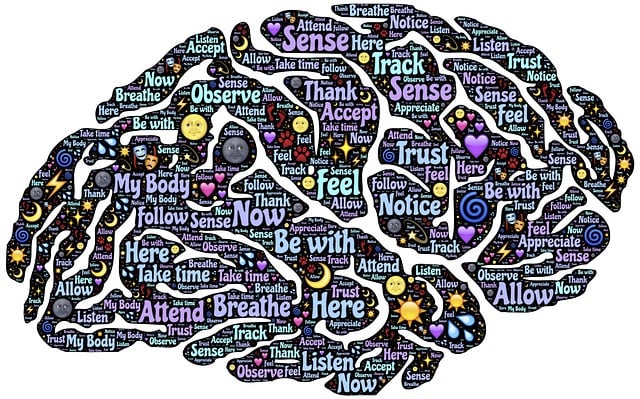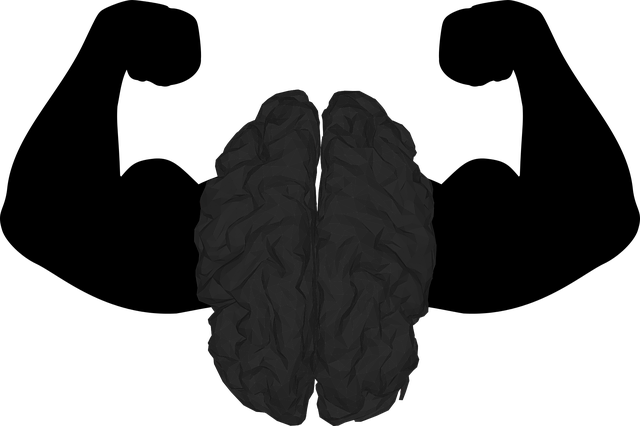Mental health policies tailored to seniors' needs are vital for addressing age-related challenges, especially as poor mental health can lead to reduced quality of life and increased institutionalization. Key strategies include integrating mental health services into primary care, providing grief counseling for bereavement support, enhancing cultural competency training, and developing inner strength programs. Grief counseling is a powerful tool for empowering seniors to cope with loss, fostering resilience, and maintaining emotional well-being. By addressing barriers like physical limitations and stigma through increased funding and awareness, therapy services tailored for elders can be more accessible, improving their mental health and quality of life.
Mental health policy analysis is crucial for understanding and addressing the unique challenges faced by elderly populations. This article delves into key aspects of mental wellness in aging, focusing on therapy access, grief counseling, and advocacy strategies. We explore how effective mental health policies can revolutionize support for older adults, enhancing their overall well-being. By examining these issues, we aim to underscore the importance of tailored interventions, including grief counseling services, in improving therapy accessibility for elders.
- Understanding Mental Health Policy and Its Impact on Elderly Populations
- The Role of Grief Counseling in Supporting Older Adults
- Analyzing Access to Therapy Services for Elders: Challenges and Solutions
- Advocacy Strategies to Improve Mental Health Support for the Aging
Understanding Mental Health Policy and Its Impact on Elderly Populations

Mental health policies play a pivotal role in addressing the unique challenges faced by elderly populations. With an aging global demographic, ensuring access to quality mental healthcare for seniors is more critical than ever. The impact of poor mental health among the elderly can be profound, often leading to increased institutionalization and reduced quality of life. Effective policies aim to integrate mental health services into primary care settings, promoting early intervention and continuous support.
One key aspect is providing tailored therapy for elders, such as grief counseling, which addresses the complex emotional landscape of aging. Additionally, healthcare provider cultural competency training ensures that professionals are equipped to understand and cater to the diverse needs of elderly patients, fostering a sense of comfort and trust. Inner strength development and coping skills enhancement programs can empower seniors to navigate mental health issues, improving their overall well-being.
The Role of Grief Counseling in Supporting Older Adults

Grief counseling plays a pivotal role in supporting older adults navigating the complexities of loss and bereavement. As individuals age, they often face multiple life transitions, including the death of loved ones, which can significantly impact their mental health and well-being. Therapy for elders focused on grief offers a safe space for them to process these emotions, fostering resilience and coping mechanisms. This form of counseling recognizes that grief is a natural response to loss and provides tools to help individuals understand and manage their feelings, thereby enhancing their ability to adapt to life changes.
Effective grief counseling for older adults incorporates strategies tailored to their unique needs, such as encouraging positive thinking and stress management techniques. By addressing the emotional aftermath of loss, counselors enable elders to maintain a sense of purpose and mental health awareness. This support is crucial in preventing prolonged grief and promoting a healthier, more fulfilling life as they navigate the challenges that come with aging.
Analyzing Access to Therapy Services for Elders: Challenges and Solutions

Access to therapy services for elders is a critical component of mental health policy analysis and advocacy. The aging population faces unique challenges that often go unnoticed in traditional healthcare systems, with many elderly individuals struggling with feelings of isolation, loss, and depression, requiring specialized therapy for elders and grief counseling. Barriers such as physical limitations, financial constraints, and a lack of culturally sensitive mental healthcare services significantly impact their ability to access these crucial emotional healing processes.
Addressing these challenges requires a multifaceted approach. Policy advocates must push for increased funding and specialized programs tailored to the needs of seniors. Incorporating cultural sensitivity in mental healthcare practice is essential to ensure that all elders feel welcomed and understood. Additionally, promoting depression prevention initiatives through public awareness campaigns and community outreach programs can help reduce the stigma surrounding mental health issues among older adults, encouraging them to seek the necessary support.
Advocacy Strategies to Improve Mental Health Support for the Aging

Advocating for improved mental health support among the aging population is a crucial mission, given the unique challenges that come with advancing years. One effective strategy involves increasing awareness about the availability and benefits of therapy specifically tailored for elders. Many older adults struggle with grief counseling, as they navigate the loss of loved ones and the adjustments associated with aging. By promoting these targeted therapies, we can foster open conversations about mental wellness among seniors, encouraging them to seek help when needed.
Additionally, integrating anxiety relief techniques into self-care routine development for better mental health is a powerful approach. The Mental Wellness Podcast Series Production can play a significant role here by offering accessible resources and sharing success stories related to managing stress and anxiety in later life. This multimedia strategy not only educates but also inspires older individuals to prioritize their mental wellness, potentially leading to improved overall well-being and quality of life.
Mental health policy plays a pivotal role in ensuring access to quality care for the elderly, addressing critical issues such as limited therapy services and the unique needs of grief counseling. By implementing effective advocacy strategies, we can revolutionize mental health support for aging populations. Enhancing accessibility to therapy, specifically tailored for the needs of elders, is not just desirable but essential. Through collaborative efforts, we can foster a more supportive environment, recognizing that proper mental healthcare is an indelible part of healthy aging. This includes recognizing the profound impact of grief counseling in mitigating the challenges faced by older adults, ensuring they receive the compassionate and specialized care they deserve.












